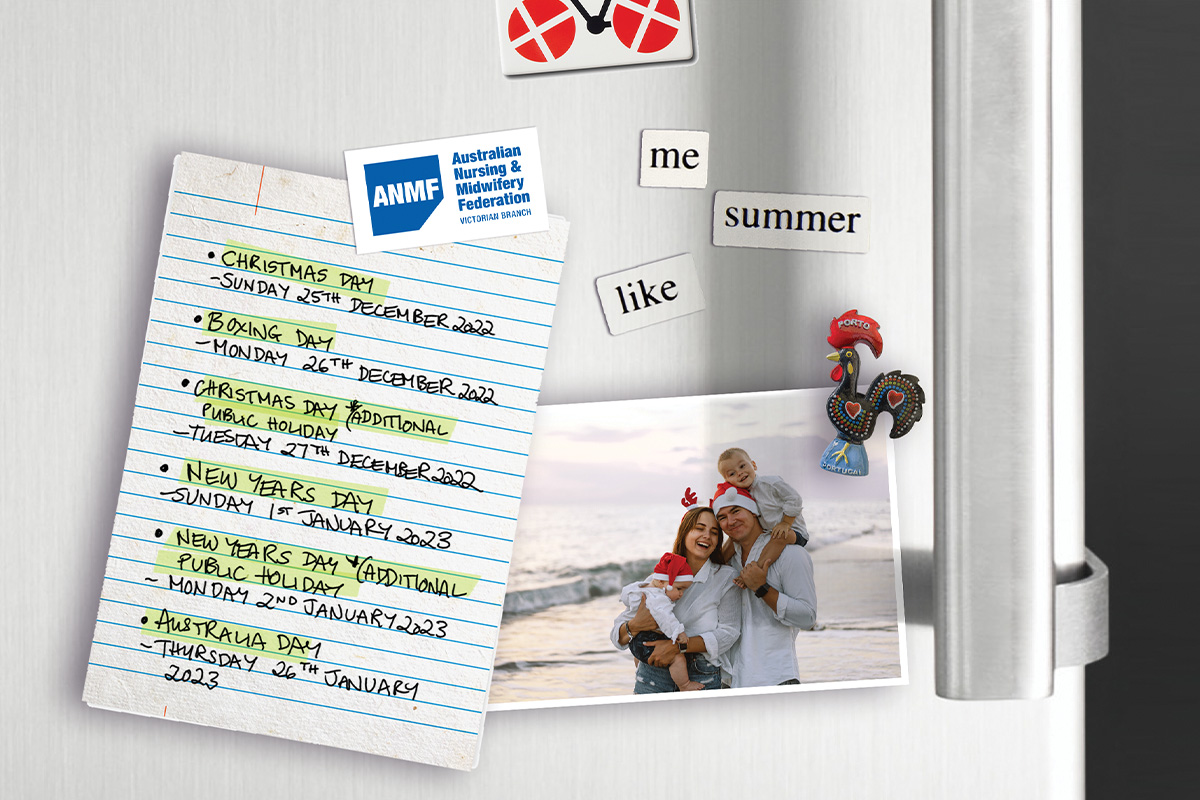
Paul Gilbert, ANMF (Vic Branch) Assistant Secretary
The Full Court of the Federal Court of Australia recently considered whether an employer can require an employee to work on a public holiday.
This appeal case was considering the effect of one of the National Employment Standards (NES). The NES applies to all Australian workers, across every industry, or the term of any EBA or contract of employment.
The NES states (in part):
Employee entitled to be absent on public holiday
(1) An employee is entitled to be absent from his or her employment on a day or part-day that is a public holiday in the place where the employee is based for work purposes.
Reasonable requests to work on public holidays
(2) However, an employer may request an employee to work on a public holiday if the request is reasonable.
(3) If an employer requests an employee to work on a public holiday, the employee may refuse the request if:
(a) the request is not reasonable; or
(b) the refusal is reasonable.
One effect of the Federal Court decision is that rostering an employee to work on a public holiday, alone, is not a request but more like a requirement. That would appear to breach the NES.
This means that many employers will now ask employees if they are prepared to work on a public holiday. This, however, creates a difficult set of circumstances for those trying to staff and work in health and aged care sectors.
Rejecting a request to work on a public holiday
While employees, in the first instance, can reject a request from their employer to work on a public holiday, that rejection must be on reasonable grounds. An employer can challenge an employee’s refusal in accordance with the following section of the NES:
(4) In determining whether a request, or a refusal of a request, to work on a public holiday is reasonable, the following must be taken into account:
(a) the nature of the employer’s workplace or enterprise (including its operational requirements), and the nature of the work performed by the employee;
(b) the employee’s personal circumstances, including family responsibilities;
(c) whether the employee could reasonably expect that the employer might request work on the public holiday;
(d) whether the employee is entitled to receive overtime payments, penalty rates or other compensation for, or a level of remuneration that reflects an expectation of, work on the public holiday;
(e) the type of employment of the employee (for example, whether full-time, part-time, casual or shiftwork);
(f) the amount of notice in advance of the public holiday given by the employer when making the request;
(g) in relation to the refusal of a request–the amount of notice in advance of the public holiday given by the employee when refusing the request;
(h) any other relevant matter.
An employer can ultimately require employees, who are involved in services where it is desirable, even if “not critical” to remain open on public holidays, to refuse an employee request not to work, if the employer has satisfied its obligations under ss 114(2) and (3), namely, that they have made a request, that request is reasonable, and an employee’s refusal is not reasonable (taking into account the factors in (4) above).
An employer can have a roster which includes public holidays. All that is required is that an employer ensure that employees understand that the roster is in ‘draft’ form, requesting those employees who have been allocated to the public holiday to indicate whether they accept or refuse that allocation, before the roster is finalised.
Given the criteria in (4) above, it is highly likely that for most members, a refusal of a request to work on a public holiday will be an unreasonable refusal.



